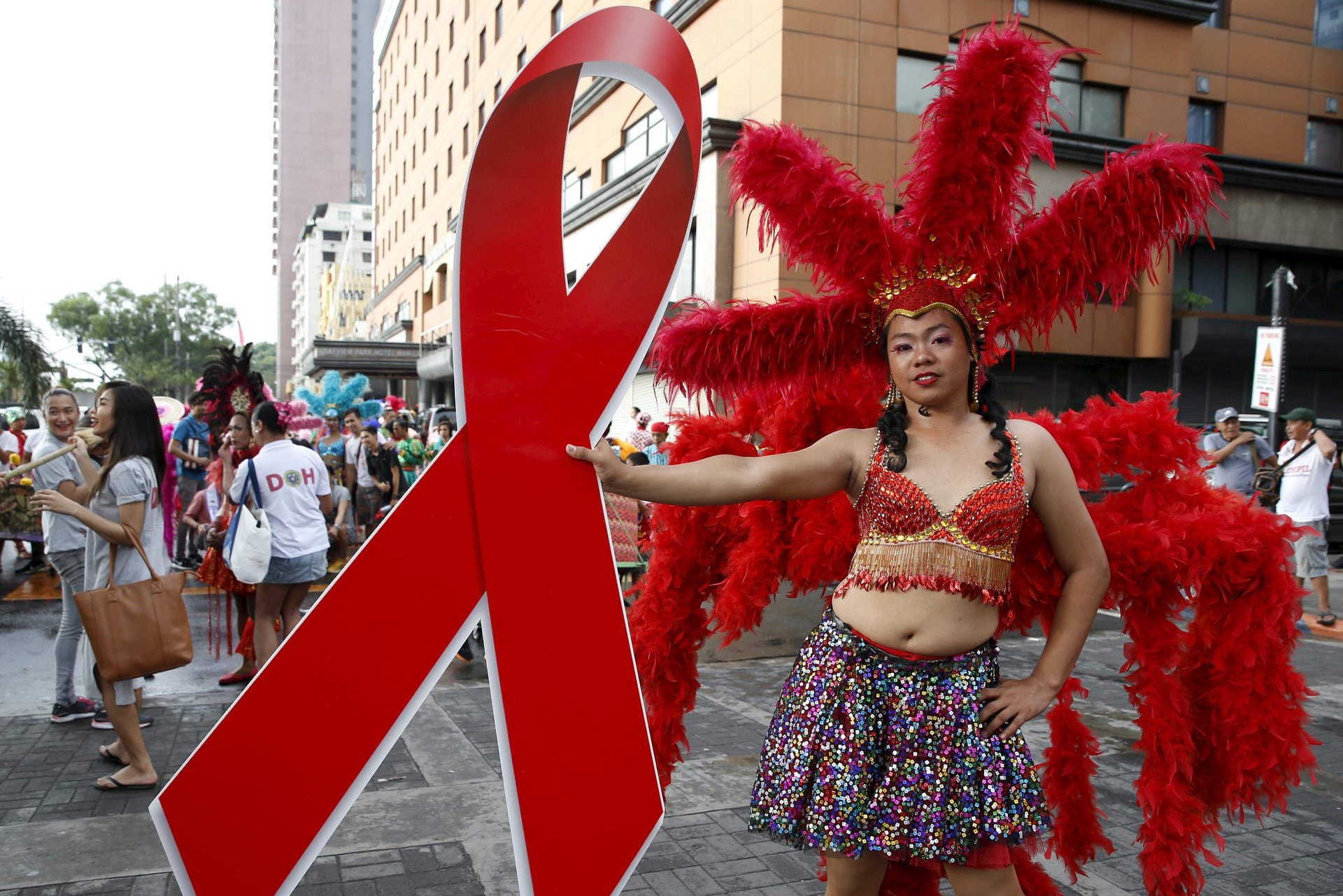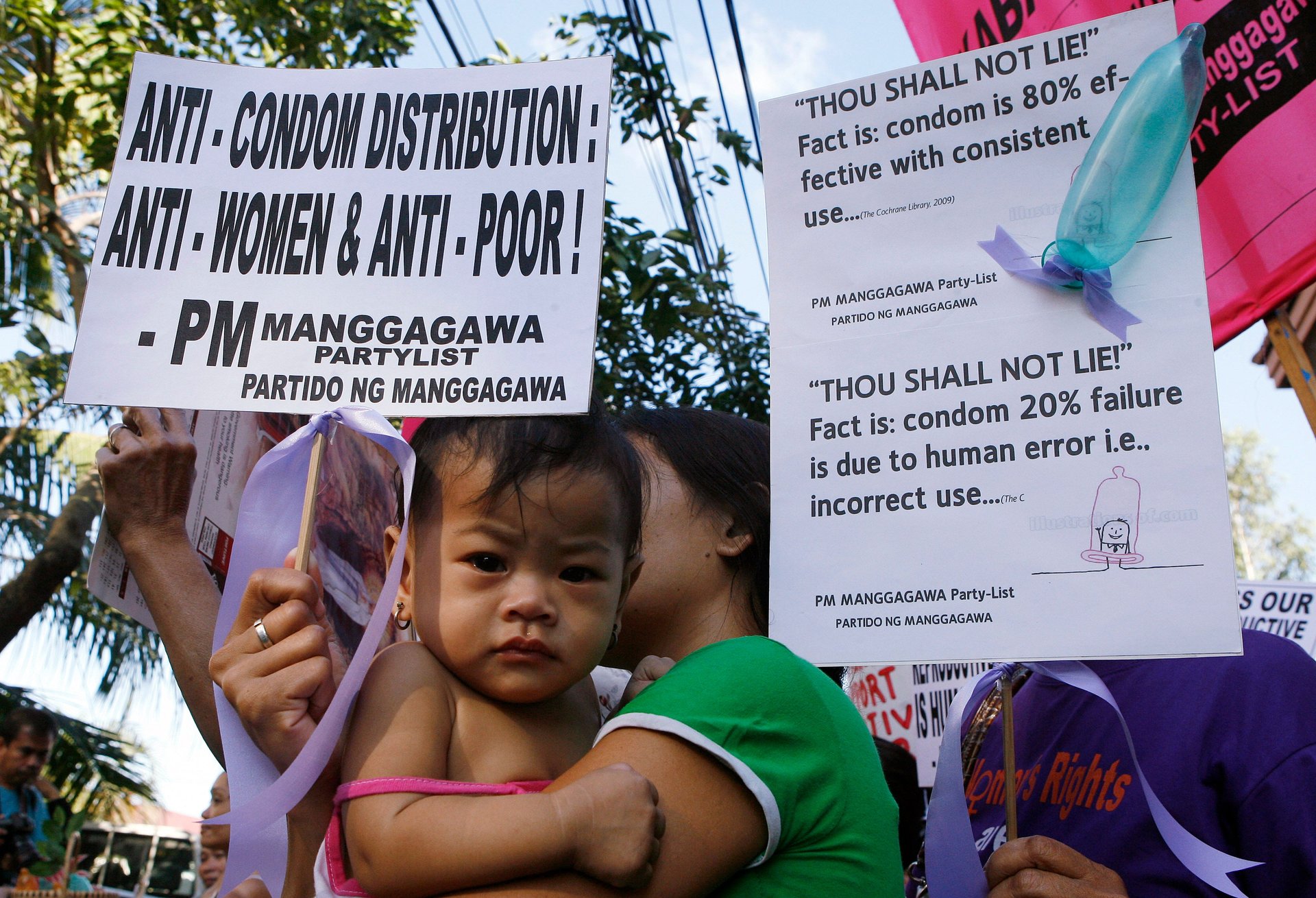Rodrigo Duterte’s next war is a growing HIV epidemic in the Philippines
Philippines president Rodrigo Duterte is best known for his violent crackdown on drugs, but a new program from his administration shows that his iron fist could be beneficial for his more progressive policies.


Philippines president Rodrigo Duterte is best known for his violent crackdown on drugs, but a new program from his administration shows that his iron fist could be beneficial for his more progressive policies.
Next year, the Department of Health (DOH) will begin to distribute condoms and hold counseling session in schools all over the Philippines, the department secretary announced this month. Duterte is a staunch supporter of the Philippines’ Reproductive Health law (RH law) and promised full implementation of it during his State of the Nation address in July. Such a decisive proclamation could be what the Philippines, a deeply Catholic country, needs to win its fight against a growing HIV epidemic.
The latest statistics from NGO Human Rights Watch, released today (Dec. 8), show that there are currently 26 newly diagnosed HIV cases per day in the Philippines, a sizeable jump from the one-per-day rate just eight years ago. The report revealed that the inaccessibility of contraceptives and lack of sexual education in schools are the root causes of the increasing HIV incidences.
The Philippines has the second-lowest rate of condom use in Asia-Pacific, with only 44 percent of men who have sex with men using condoms, according to a ranking by the United Nations Children’s Fund (UNICEF). This was brought about in part by the uneven implementation of the country’s RH law in different parts of the country, according to the Philippine Commission on Human Rights.

The law was enacted in 2012, after 15 years of large-scale rallies from both supporters and those who opposed it. It was written to be the most comprehensive reproductive health law in the Philippines but some provisions were removed, including one allowing minors to access modern family-planning methods without consent from their parents. The section was deemed unconstitutional by the supreme court, making it nearly impossible for young Filipinos to get contraceptives. This change is crucial because today, youth are the most at risk. According to Philippine government data, cases of HIV in 15 to 24 year-olds increased by 780 percent from 2001 to 2015.
Sexuality and reproductive health is a controversial and divisive topic in the Philippines, but even the the Catholic Bishops’ Conference of the Philippines (CBCP), which protested against the RH law, recently spoke out about the state of HIV in the country.
“This is a day for us to increase our knowledge, awareness, consciousness [about HIV/AIDS], especially because of the youth affected now by this global problem of HIV and AIDS,” Fr. Dan Cansino, the CBCP’s health care executive secretary, said.
Apart from access to contraceptives, another roadblock for young Filipinos is the unavailability of HIV tests. Just like the law against distributing contraceptives to minors, a provision under the country’s AIDS Law prohibits HIV testing for those under 18 who don’t have permission from their parents. The DOH plans to get rid of this obstacle by providing self-test kits to high-risk groups as soon as it is available in the Philippines.
Duterte and the DOH are also developing a universal health care program supported by the senate that recently approved a three billion peso ($60 million) increase in the department’s insurance budget for 2017.